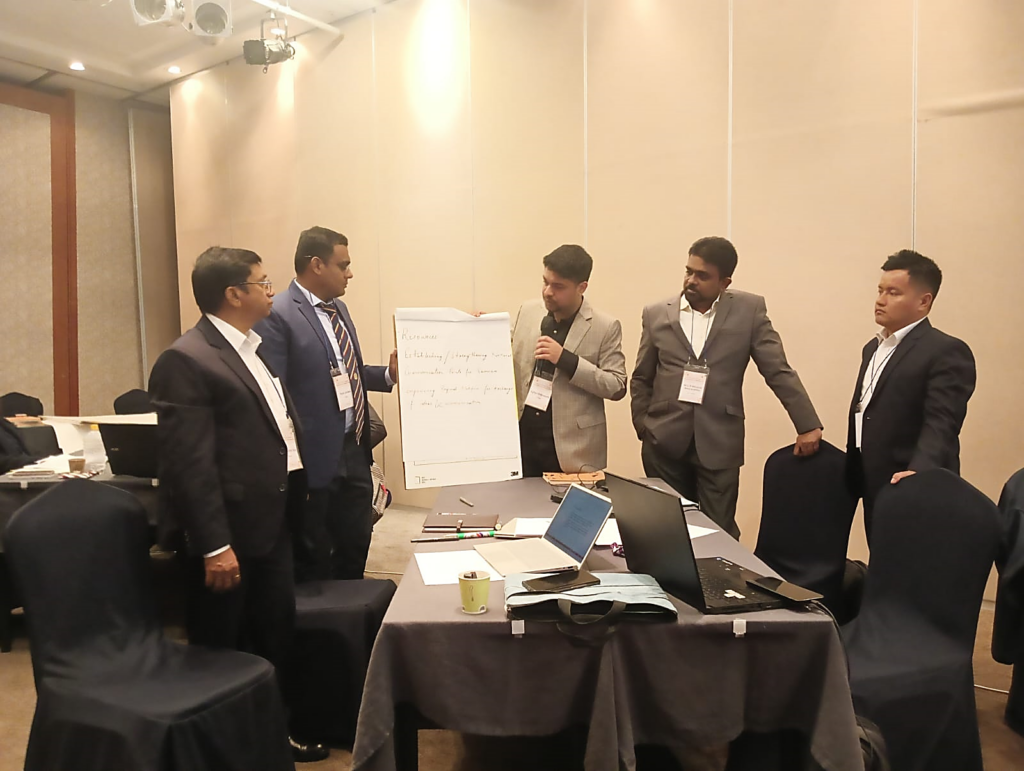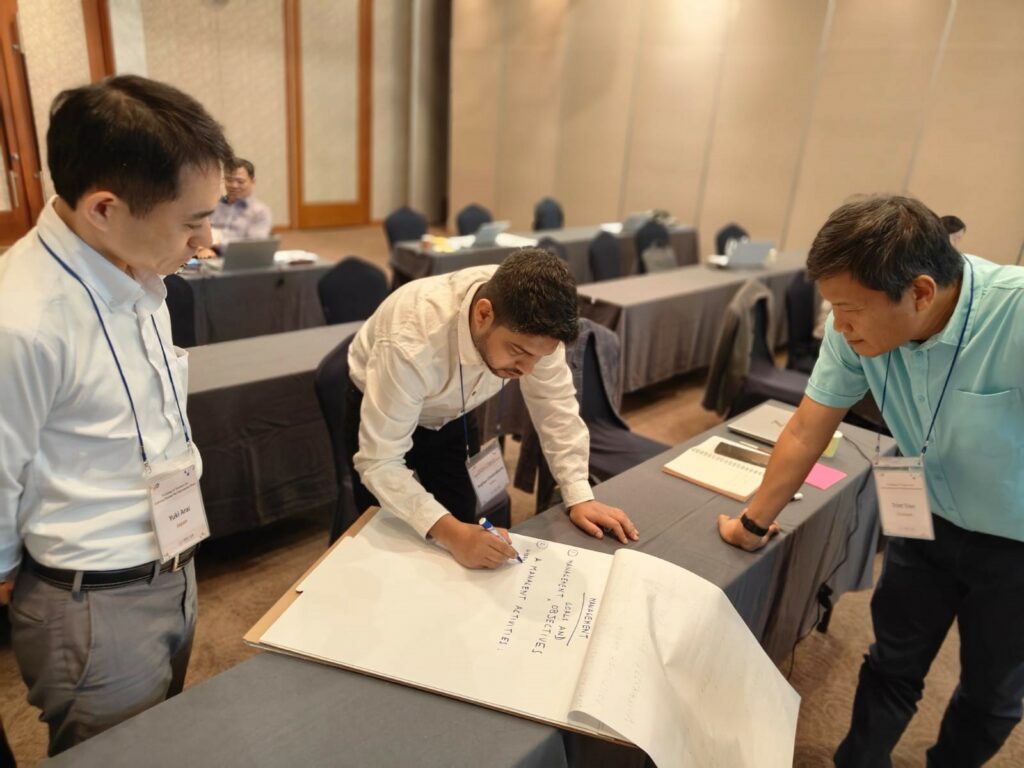
Enhancing Ramsar Site Information Sheets: Boost for wetland conservation and wise use
-
Capacity development

Ramsar Regional Center – East Asia (RRC-EA) organised a training workshop for trainers and Ramsar Site Managers for the updation of Ramsar Site Information Sheets in Suncheon City, Republic of Korea fostering its shared dedication with Wetlands International South Asia towards wetlands conservation in the region. The workshop took place in two parts, with the training of trainers from 17 to 19 April 2024, followed by the regional training workshop for Ramsar Site Managers from 20 to 23 April 2024. A total of 38 participants from 10 countries representing East, Southeast, and South Asia subregions attended the workshop.

(Sharing of experiences of wetland management from the South Asian Region with Ramsar Site Managers of India, Nepal and Sri Lanka)
Mr Arghya Chakrabarty, Technical Officer at Wetlands International South Asia, conducted a session during the workshop. His expertise in wetland management and Ramsar Site Information Sheets was instrumental in delivering a thorough training session on designating and managing Ramsar Sites. The session included information on tools for boundary demarcation, baseline status assessment of wetlands and their catchment areas, interpretation of physical attributes, biodiversity, hydrology, bio-physics, livelihood generation, and other pertinent factors. He also explained the process of evaluating the ecological character description of a wetland and discussed the fundamental tools necessary for effective wetland management. His session was a valuable addition to the workshop, providing the participants with practical insights and tools for their work.

(Discussions and interactive participation with resource persons from Vietnam and Japan)
Experts from various countries in the region conducted a capacity-building workshop for Ramsar Site Managers during the regional workshop. The workshop was designed to be interactive, encouraging participants to actively discuss the challenges they encountered while completing the Ramsar Information Sheets. They also exchanged suggestions to enhance the sheet-filling process and improve the overall designation procedure. The workshop focused on several key areas, including the significance of designating wetlands as Ramsar Sites, the importance of involving stakeholders in the designation process, identifying Wetlands of International Importance, evaluating the ecological character of wetlands based on the nine qualifying criteria, conducting rapid assessments of ecosystem services, compiling and updating Ramsar Site Information Sheets, and monitoring and reviewing outdated Information Sheets. This interactive approach fostered a collaborative learning environment, enhancing the workshop’s effectiveness.
